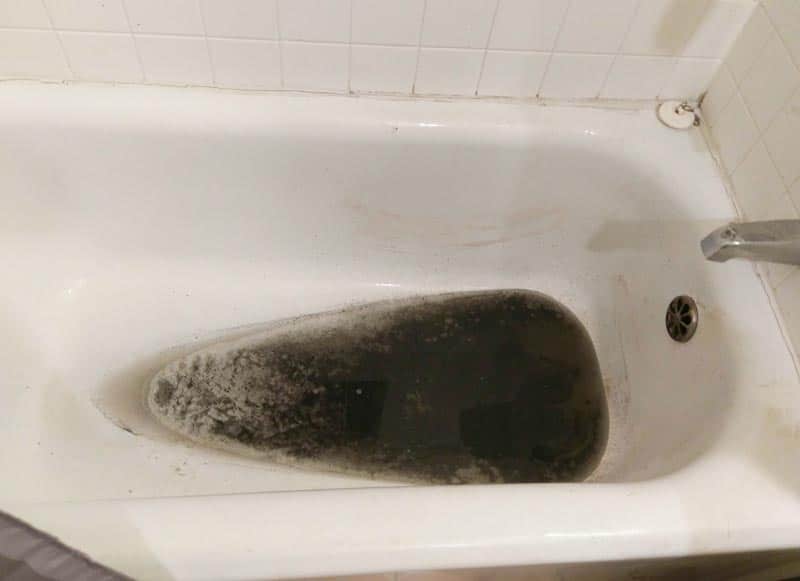What are your beliefs on Water Coming up Bathtub Drain?

Sewage back-up in the bathtub can be a distressing and unsanitary trouble for any home owner. Not just is it inconvenient, however it also poses significant health dangers and shows underlying concerns with the plumbing system. Comprehending why sewer is showing up via the bath tub is crucial for taking suitable action to address the problem effectively.
Introduction to the Issue
Typical Reasons for Sewer Back-up
Clogs in the Sewage System Line
Among one of the most common root causes of sewer back-up is a blockage in the sewer line. This can occur due to the accumulation of debris, oil, or international items in the pipes, stopping correct circulation and triggering sewage to support right into your tub.
Tree Origin Invasion
Tree roots seeking wetness and nutrients can penetrate sewer lines via small splits or joints. In time, these origins can expand and expand, triggering significant damages to the pipelines and leading to sewage back-up issues.
Recognizing the Problem
When sewage draws back up into the bath tub, it's a clear sign of a problem with the water drainage system. The wastewater that must be flowing far from your home is instead finding its way back right into your living space, which can cause significant damages and health hazards.
Possible Reasons
Several factors can add to sewer backup in the bathtub. From blockages in the drain line to concerns with the plumbing framework, identifying the origin is essential for finding a remedy.
Aging Facilities
Older homes may have outdated plumbing systems that are extra susceptible to rust, fractures, and degeneration. As pipes age, they end up being a lot more vulnerable to leakages and obstructions, boosting the probability of sewage backup occurrences.
Heavy Rainfall or Flooding
Throughout periods of heavy rainfall or flooding, the sewer system might become overloaded with excess water, triggering backups and overflows. This can result in sewer supporting into bathtubs and other components inside the home.
Signs of Sewer Back-up
Foul Odors
Unpleasant odors emanating from drains or components, specifically in the shower room, might show sewer back-up issues. These odors are usually solid and consistent, indicating an issue that needs instant focus.
Slow Draining Fixtures
Bath tubs, sinks, and commodes that drain pipes gradually or not in all could be experiencing sewer backup. If numerous components are impacted simultaneously, it's most likely that the concern stems from a common point, such as the major drain line.
Gurgling Noises
Weird gurgling or bubbling noises originating from drains when water is running in other places in the house are a sign of air trapped in the plumbing system. This air build-up can result from sewer back-up and need to be checked out promptly.
Health And Wellness Dangers Related To Sewage Backup
Contamination of Water
Sewer back-up can pollute the water system in your home, posing a major health threat to you and your household. Direct exposure to polluted water can result in stomach problems, skin infections, and other diseases.
Mold and mildew Growth
Wetness from sewer backup can produce ideal conditions for mold and mildew growth in your house. Mold spores can worsen respiratory issues and trigger allergies in sensitive individuals, making timely cleaning important.
Spread of Illness
Sewer contains dangerous microorganisms, viruses, and bloodsuckers that can create a range of illness, consisting of liver disease, cholera, and gastroenteritis. Coming into contact with sewage or infected surfaces places you at risk of infection.
Tidying up After Sewer Back-up
Disinfection Procedures
Extensively sanitize and disinfect influenced locations after sewage back-up to remove dangerous bacteria and stop mold and mildew growth. Use suitable cleaning items and safety equipment to guarantee secure and effective clean-up.
Reconstruction of Influenced Locations
Fix any damage to flooring, walls, or fixtures caused by sewer back-up. Depending upon the degree of the damage, you might require to replace carpeting, drywall, or other products to recover your home to its pre-loss problem.
Immediate Actions to Take
Switching Off Water
In case of sewer back-up, it's vital to switch off the water to stop additional contamination and damage. Locate the primary water shutoff valve in your home and closed it off up until the issue can be settled.
Speaking To a Professional Plumber
Dealing with sewer backup is not a do it yourself task. Get in touch with a licensed plumber with experience in dealing with sewage-related concerns to examine the situation and do necessary repair work or cleanings.
Avoiding Contact with Infected Water
Till the sewer backup is settled, avoid contact with polluted water to avoid the spread of microorganisms and virus. Wear protective gear if you should remain in the damaged area and clean your hands completely later.
Safety nets
Routine Maintenance of Drain Lines
Arrange routine assessments and upkeep of your drain lines to determine and address potential concerns prior to they intensify into major problems. This can consist of clearing out debris, evaluating for tree root intrusion, and fixing any kind of broken pipelines.
Setting Up Backwater Shutoffs
Think about mounting backwater shutoffs in your plumbing system to prevent sewer from flowing back into your home during periods of heavy rainfall or flooding. These valves automatically close when water starts backing up, protecting your residential property from contamination.
Correct Disposal of Family Waste
Stay clear of flushing anything besides bathroom tissue and human waste down the bathroom to prevent blockages and blockages in the drain line. Dispose of grease, oil, and other household chemicals correctly to decrease the risk of plumbing issues.
Why Is Water Backing Up in My Bathtub When I Flush My Toilet?
What to do about a sewer line clog
First, don’t bother with plunging. No amount of plunging will dislodge the clog in a sewer line. The clog is too far away. Plungers are for clogs in the toilet itself, not the sewer line. Plus, the most likely causes of a sewer clog are:
Tree roots Flushed toys or feminine products Grease buildup Those items don’t move easily. And in the case of tree roots, the roots need to be cut out of the pipe and the pipe will need to be repaired.
You’ll need a closet auger. A closet auger is a type of plumber’s snake with a protective cover to keep from scratching the delicate porcelain toilet. If the clog is further down, you may need to remove the toilet or use one of your cleanouts to get to the clog.
We also recommend doing a video inspection of the drain to ensure that the cause of the clog has been completely removed. Otherwise, you could have the same problem again in a few days or weeks.
https://mspplumbingheatingair.com/blog/why-is-water-backing-up-in-my-bathtub-when-i-flush-my-toilet

I have been very fascinated with Why is Sewage Backing Up Into My Bathtub? and I'm hoping you enjoyed my entry. So long as you enjoyed our blog post kindly consider to pass it around. Thanks a lot for taking the time to read it.
Contact Us Now